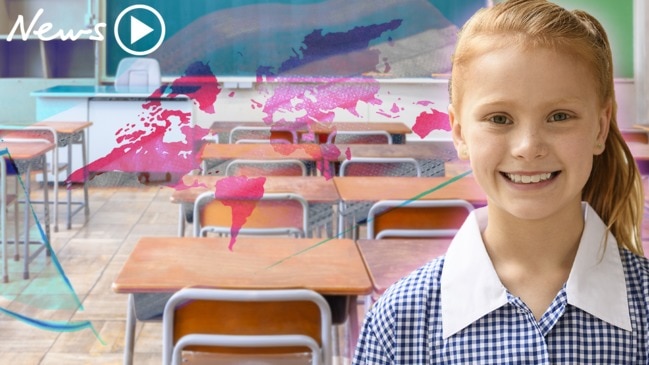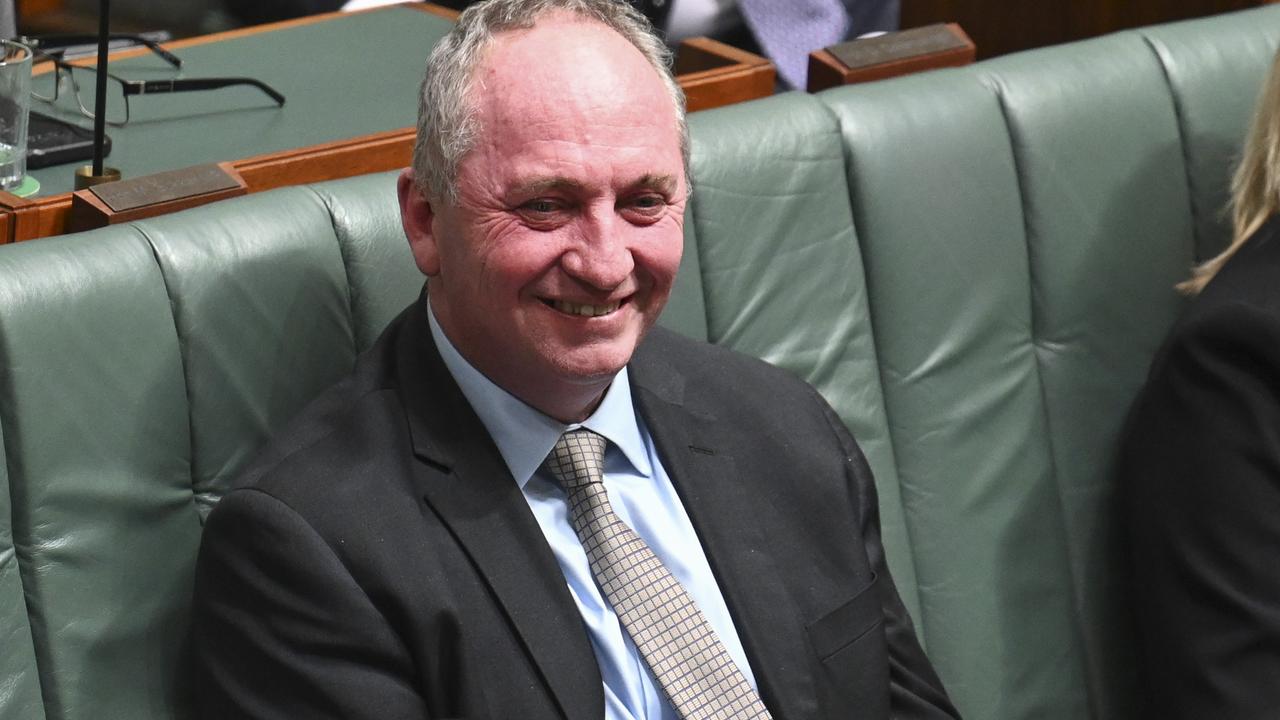Coronavirus Australia: Rules for domestic, international travel, supermarkets, schools, childcare
The Australian Government has imposed exceptional new restrictions on society in a bid to contain the coronavirus outbreak.

As coronavirus infections rise across Australia, the government has imposed a series of new measures and restrictions.
Here’s what you need to know.
SUMMARY OF NEW RULES:
– Non-essential gatherings of more than 100 people are forbidden
– No more than one person per four square metres in a room, including outdoor events
– Hand hygiene products must be made available in all venues
– Restricted travel into remote indigenous communities
– Non-essential domestic travel is under review
NEW CROWD RESTRICTIONS:
Prime Minister Scott Morrison has announced new space restrictions, saying there will be a maximum limit of “four square metres provided per person in an enclosed space”.
READ MORE: Follow the latest coronavirus updates
READ MORE: All your questions about COVID-19 answered
“The rise in the number of cases means we need to continue to take measures to flatten the curve,” the PM said on Friday. “That means we have to work even harder to keep a healthy distance between us all.
“We agreed to further rules today regarding indoor non-essential activities.”
“Four square metres provided per person in an enclosed space in a room.
“So for example, if you’ve got a room, if you’ve got a premises, if you’ve got a meeting room or something like that, that’s 100 square metres, then you can have 25 people in that room.
“Now, in addition to that, you should continue to practise wherever possible the 1 metre or 1.5 metre of healthy distance between each of us, to ensure that we are limiting the contact and limiting the potential for the spread of the virus.”
He added: “I know these rules will take some time for people to get used to, but I would ask people to move as quickly as they can.
“I know it means a lot of change for a lot of venues, whether they be cafes or restaurants or clubs or any of these other places of public gathering, including at this building here.
“We’ll be working to ensure that people know how many people can be in the various meeting rooms at this place.”

OUTDOOR EVENTS:
Mr Morrison said outdoor events of fewer than 500 attendees could proceed but with specific measures in place.
In a given occupied space, there must be no more than one person per four square metres of ground space.
Hand hygiene products must be available and suitable waste receptacles, with frequent cleaning and waste disposal.
There must also be promotion of the Department of Health recommendations for unwell individuals to isolate at home and not attend.
Food markets are exempt from the 500 person limit, however must undertake additional measures, such as control of patronage level numbers or stall density reduction to decrease the risk of COVID-19 transmission.
SPECIAL EXEMPTIONS:
There may be other gatherings that are not specifically mentioned that are considered essential. The National Cabinet agreed that it is at the discretion of the individual state and territory Chief Health Officers or equivalent to assess each on their merits, and determine whether they can continue if mitigated by social distancing measures.
The development of any guideline requires continual re-evaluation and amendments or new guidelines may be released as the COVID-19 pandemic continues to progress.
DOMESTIC TRAVEL:
The PM said Australians should reconsider the need for unnecessary travel. If people are unwell they must stay at home, unless they are seeking medical care.
The National Cabinet previously agreed that public transport is essential and that Australian Health Protection Principal Committee (AHPPC) advice should apply in relation to public transport (trains, trams, buses, ferries), taxi and ride share vehicles and transport of vulnerable populations, with particular attention given to cleaning and hygiene.
However, Mr Morrison said people should sit in the back seat of cabs or Ubers.
The National Cabinet previously agreed that domestic air travel is low risk.
The next meeting of the National Cabinet will consider further arrangements for domestic travel.
RELATED: Australian flights suspended due to virus
INTERNATIONAL TRAVEL:
Mr Morrison said the National Cabinet noted the AHPPC’s advice on high-risk countries for the importation of COVID-19 and would continue with the mandatory 14 day self-isolation requirement for all returning travellers.
He said the National Cabinet welcomed the Commonwealth Government’s decision to stop the entry of non-citizens and non-permanent residents and their immediate families into Australia after 9pm AEDT on Friday 20 March 2020 to reduce in order to align international travel restrictions with the risks.
Limited exemptions will be available under the authority of the Australian Border Force Commissioner, focused on individuals providing critical or essential services or on compassionate grounds.
RELATED: How to self-isolate due to coronavirus
SUPERMARKETS AND RETAILERS:
Mr Morrison said the National Cabinet reiterated Australia’s food and medicine supplies are secure and there is no need to panic buy.
He called for Australians to stop hoarding from supermarkets, chemists and other retail outlets, saying it is depriving elderly and vulnerable Australians of essential supplies.
Mr Morrison said criminal or violent behaviour would not be tolerated and would be dealt with swiftly by police. “This behaviour is un-Australian,” he said in a statement.
A Supermarkets Taskforce has been established to work with all levels of government, industry and the community to ensure supermarkets can continue providing essential daily supplies and to rapidly resolve issues that may prevent this such as trucking curfews, home delivery arrangements and workforce safety.
SCHOOLS, EARLY LEARNING AND CHILDCARE:
The PM said arrangements for schools had not changed.
“Consistent with earlier advice on schools, the National Cabinet agreed to the AHPPC advice regarding child care centre closures and noted that ‘pre‑emptive closures are not proportionate or effective as a public health intervention to prevent community transmission of COVID-19 at this time’,” he said.
AHPPC also provided a series of risk mitigation measures for early learning and child care, including:
* Exclusion of unwell staff, children and visitors
* Reduce mixing of children by separating cohorts (including the staggering of meal and play times)
* Enhanced personal hygiene for children, staff and parents
* Full adherence to the NHMRC childcare cleaning guidelines
* Excursions other than to local parks should be discouraged
* Influenza vaccination for children, staff and parents.
AHPPC also noted that, “there may need to be consideration of alternative arrangements for highly vulnerable children” and recommended “these parents seek medical advice.”
Strategies to reduce transmission in schools were included in AHPPC’s advice on March 17 and include reducing public gatherings and mixing of students.
CRIMINAL JUSTICE SYSTEM:
Mr Morrison said state and territory leaders agreed that from March 20, 2020 each state’s and territory’s adult correctional system would restructure personal prison visits to help manage the risk posed to prisoners and staff by the introduction of COVID-19 into custodial facilities. “Depending on their operational needs, this may include stopping visits in some jurisdictions,” he said.
REMOTE COMMUNITIES:
The PM said isolation and remoteness offered opportunities for delaying or potentially preventing an outbreak of COVID-19 in remote indigenous communities.
“However, high mobility of community members and a reliance on visiting and outreach activities and services increase the risk of COVID-19 occurring in these communities.
“The National Cabinet provided in-principle agreement to the Commonwealth Minister for Health taking action under the Commonwealth Biosecurity Act 2015 to restrict travel into remote indigenous communities to prevent the spread of COVID-19.
“Under this measure, states and territories will nominate areas in consultation with indigenous communities, and an emergency requirement determined under the Biosecurity Act 2015 will restrict persons from entering or leaving those nominated areas.
“This follows the decisions of a number of indigenous communities and the Western Australian Government to implement similar measures, and considerations by the Northern Territory Government to phase up their response by restricting access to remote communities.
“Under this proposal an emergency requirement determined under the Biosecurity Act 2015 will restrict persons from entering or leaving areas as nominated by states and territories.
“The emergency requirement will also allow jurisdictions to nominate a decision maker who will be empowered to permit additional classes of people to enter or leave the community in certain circumstances (e.g., to provide services that are essential for that particular community, such as child care support or mental health services).
“Consistent with AHPPC guidance, individuals will be required to undergo a minimum period of isolation (currently 14 days) before entry or re-entry into the area will be allowed.
“These rules are aimed at preventing the spread of COVID-19 in remote communities and to rapidly address outbreaks. Enforcement of these restrictions will be the responsibility of each jurisdiction.
“The National Cabinet agreed that these measures would be implemented as soon as possible.”



